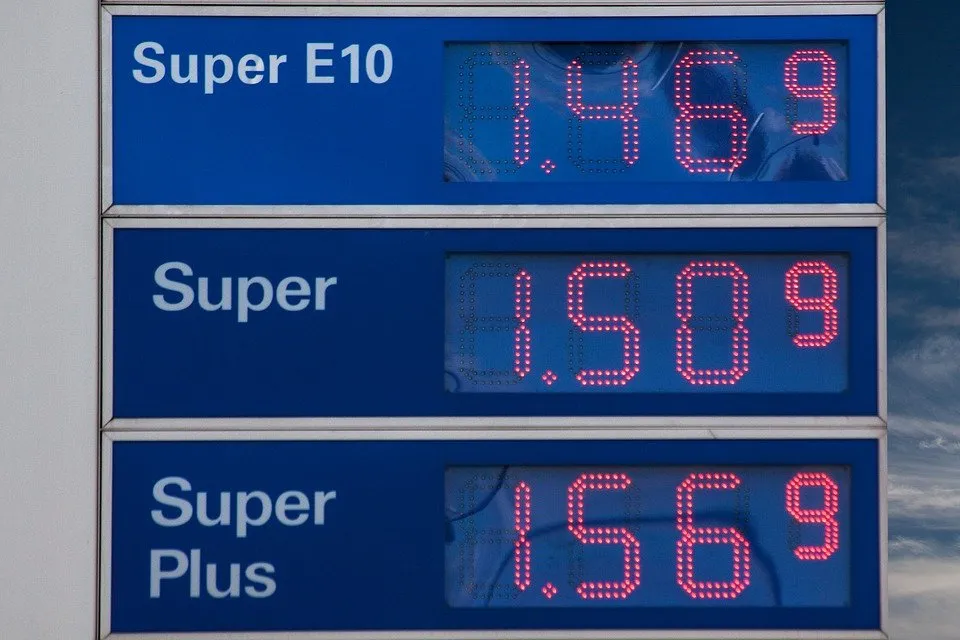I recently had the pleasure of wasting two minutes of my life that I'll never get back watching a video about a resource-based economy. For those who don't know, the Venus Project has, at its goal, the creation of what they call a "resource-based economy." What is that? Well, the short answer is communism. The long answer is also communism...with robots. To the Venus Project, systems of exchange create unequal statuses among people (even barter apparently is not equal enough), so their answer is the abolition of states and the implementation of intelligent resource management such that everyone's needs are met. No hunger, no thirst, no lack of medical care; these are all the stated end results of abolishing property ownership, money, and governments, replacing traditional social structures for resource management with a system of technology.
Sounds idyllic right? That's cause it's an absurd disaster waiting to happen.
There are a couple of interrelated problems with this system, but I think it can be best summed up by the contradiction that arises from the stated goals on their website:
In a Resource Based Economy all goods and services are available to all people without the need for means of exchange such as money, credits, barter or any other means. For this to be achieved all resources must be declared as the common heritage of all Earth’s inhabitants.
Okay, chief, then riddle me this: if all resources are common heritage of all people, how can all goods and services be available to all people without some system of exchange? The only way this is even conceivable is if those providing services are enslaved to those who desire the service. Never mind the massive flaw in the reasoning that all resources are the common heritage of all people; there's a reason why the tragedy of the commons is an economic problem that is debated to this day. Simply saying that everything belongs to everyone solves nothing, and it creates way more problems than the ones you're trying to solve in the first place.
The solution proposed is to use technology, which, in their mind at least, tries to circumvent the fact that making goods and services available to everyone for free enslaves the producers. Never mind the question of who controls the machines; that's conveniently ignored since everything is commonly owned. All that aside, though, no magical robotic system is going to make communism successful. Communism, like it's preceding socioeconomic step socialism, are incapable of accurately dealing with the myriad goals found among the myriad people it's supposed to be practiced on. It's called the economic calculation problem. Essentially, if a central agency or group (in this case, the machine intelligence that doles everything out to everyone) attempts to allocate resources, it will be unable to allocate them efficiently because it lacks the necessary information to do so. There's no way of accurately accounting for the ever-changing ocean of goals and desires that human beings dream up.
Want to know something that does accurately measure people's desires and demands? Prices!

I know, I'm a greedy, heartless capitalist for supporting prices, and, by extension, systems of exchange. Here's the thing though: prices allow people to make decisions based on the scarcity of goods as compared to how immediately they're being used. Prices reflect the demand of a good against the supply of that good. Thanks to prices, we can realize that a turkey sandwich is worth less than, say, an ingot of gold; turkey sandwiches are easy to manufacture and the goods necessary to produce them are plentiful, whereas gold is much rarer and in vastly higher demand. Prices allow individual market actors to make economic decisions about how best to use their time and their own resources in exchange for others, to achieve the greatest ends they prefer.
Without prices, there's no way to determine which goods are best applied to what ends. Without prices, resources are allocated to whatever ends the central authority (machine intelligence - I mean, really, who wants to be ruled by machines?) decides are best suited. This ignores the vast number of other ends those resources could be used for more efficiently, and it creates mountains of waste. Central planning, even when done by an impartial computer, fails every single time.
What's the best way to express prices? Money!
Money is simply something that can be substituted in place of actual goods or services, rather than trading the goods and services themselves. Sure, barter works, but it's burdensome on everybody. How many eggs can I get for my gently-used pair of Nike sneakers? The question sounds absurd, but that's essentially what needs to be answered in any barter system: how can wants coincide when everything has to be traded at a 1:1 exchange?

That's where money comes in. Money - real money, not fiat currency - is generally not easily reproducible, is more valuable in exchange than what it could be used for, and is portable, among other qualities. Jared Howe has a pretty good write-up of the difference between money and currency, and what makes good money, so I won't delve to deeply into it here. What is important for this particular discussion is that, because exchanges between people are the only way to accurately allocate resources as efficiently as possible, money becomes a necessity to reduce the burden of those exchanges.
Magical robots and feel-good rhetoric don't change economic fact. Kudos to the Venus Project for trying a new spin on communism with machines though! Nothing like calling a machine intelligence Dear Leader instead of some crazy guy in a gray track-suit with crazy hair and Coke-bottle glasses.

Andrei Chira is a vaper, voluntaryist, and all-around cool dude. Formerly a paratrooper in the 82nd Airborne Division, he now spends his time between working at VapEscape in Montgomery County, Alabama, contributing to Seeds of Liberty on Facebook and Steemit, writing short fiction, and expanding his understanding of...well, everything, with an eye on obtaining a law degree in the future.